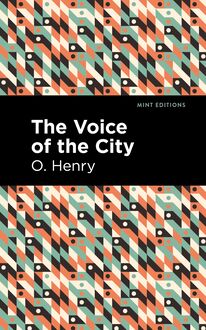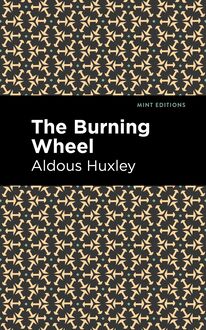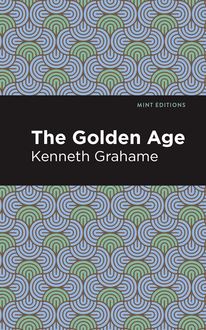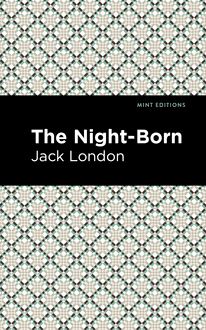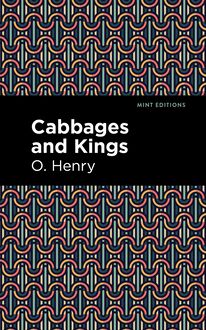-
 Univers
Univers
-
 Ebooks
Ebooks
-
 Livres audio
Livres audio
-
 Presse
Presse
-
 Podcasts
Podcasts
-
 BD
BD
-
 Documents
Documents
-
- Cours
- Révisions
- Ressources pédagogiques
- Sciences de l’éducation
- Manuels scolaires
- Langues
- Travaux de classe
- Annales de BEP
- Etudes supérieures
- Maternelle et primaire
- Fiches de lecture
- Orientation scolaire
- Méthodologie
- Corrigés de devoir
- Annales d’examens et concours
- Annales du bac
- Annales du brevet
- Rapports de stage
La lecture à portée de main
Vous pourrez modifier la taille du texte de cet ouvrage
Découvre YouScribe en t'inscrivant gratuitement
Je m'inscrisDécouvre YouScribe en t'inscrivant gratuitement
Je m'inscrisEn savoir plus
Vous pourrez modifier la taille du texte de cet ouvrage
En savoir plus

Description
“The style of Hawthorne is purity itself. His tone is singularly effective-wild, plaintive, thoughtful, and in full accordance with his themes.”- Edgar Allan Poe
“To this little book we would say ‘Live ever, sweet, sweet book.’ It comes from the hand of a man of genius.”-Henry Wadsworth Longfellow
Nathaniel Hawthorne’s Twice-Told Tales is a spectacularly rich collection of thirty-nine penetrating stories. With a rare purity of style, these tales chronicle both familiar life and haunted specters through a lens of subtle mysticism and deep melancholy. The title is a nod to Shakespeare’s line “Life is a tedious as a twice-told tale/Vexing the ear of a drowsy man.”; it furthermore is Hawthorne’s acknowledgment that these stories all had been previously published in various magazines and newspapers of the day.
Never one to shy from exploring themes of darkness and morality, these stories beg for repeated readings in order to fully grasp their true richness; yet, there is a sheer enjoyment in the subtle, truly imaginative beauty in each one. Amongst this collection are the tales “The Ambitious Guest,” “The Minister’s Black Veil,” “The May-Pole of Merry Mount,” “The Hollow of Three Hills,” “The Haunted Mind,” and “Dr. Heidegger’s Experiment” which was adapted into the 1963 Horror Film starring Vincent Price.
Sujets
Informations
| Publié par | Mint Editions |
| Date de parution | 21 septembre 2020 |
| Nombre de lectures | 1 |
| EAN13 | 9781513265568 |
| Langue | English |
| Poids de l'ouvrage | 1 Mo |
Informations légales : prix de location à la page 0,0500€. Cette information est donnée uniquement à titre indicatif conformément à la législation en vigueur.
Extrait
Twice-Told Tales
A Collection of Short Stories
Nathaniel Hawthorne
Twice-Told Tales: A Collection of Short Stories was first published in 1837.
This edition published by Mint Editions 2020.
ISBN 9781513264882 | E-ISBN 9781513265568
Published by Mint Editions®
minteditionbooks.com
Publishing Director: Jennifer Newens
Project Manager: Gabrielle Maudiere
Design & Production: Rachel Lopez Metzger
C ONTENTS T HE G RAY C HAMPION S UNDAY AT H OME T HE W EDDING -K NELL T HE M INISTER ’ S B LACK V EIL T HE M AYPOLE OF M ERRY M OUNT T HE G ENTLE B OY M R . H IGGINBOTHAM ’ S C ATASTROPHE L ITTLE A NNIE ’ S R AMBLE W AKEFIELD A R ILL FROM THE T OWN -P UMP T HE G REAT C ARBUNCLE T HE P ROPHETIC P ICTURES D AVID S WAN S IGHTS FROM A S TEEPLE T HE H OLLOW OF THE T HREE H ILLS T HE T OLL -G ATHERER ’ S D AY T HE V ISION OF THE F OUNTAIN F ANCY ’ S S HOW -B OX D R . H EIDEGGER ’ S E XPERIMENT L EGENDS OF THE P ROVINCE -H OUSE I. H OWE ’ S M ASQUERADE II. E DWARD R ANDOLPH ’ S P ORTRAIT III. L ADY E LEANORE ’ S M ANTLE IV. O LD E STHER D UDLEY T HE H AUNTED M IND T HE V ILLAGE U NCLE T HE A MBITIOUS G UEST T HE S ISTER -Y EARS S NOWFLAKES T HE S EVEN V AGABONDS T HE W HITE O LD M AID P ETER G OLDTHWAITE ’ S T REASURE C HIPPINGS WITH A C HISEL T HE S HAKER B RIDAL N IGHT -S KETCHES E NDICOTT AND THE R ED C ROSS T HE L ILY ’ S Q UEST F OOTPRINTS ON THE S EASHORE E DWARD F ANE ’ S R OSEBUD T HE T HREEFOLD D ESTINY
T HE G RAY C HAMPION
There was once a time when New England groaned under the actual pressure of heavier wrongs than those threatened ones which brought on the Revolution. James II., the bigoted successor of Charles the Voluptuous, had annulled the charters of all the colonies and sent a harsh and unprincipled soldier to take away our liberties and endanger our religion. The administration of Sir Edmund Andros lacked scarcely a single characteristic of tyranny—a governor and council holding office from the king and wholly independent of the country; laws made and taxes levied without concurrence of the people, immediate or by their representatives; the rights of private citizens violated and the titles of all landed property declared void; the voice of complaint stifled by restrictions on the press; and finally, disaffection overawed by the first band of mercenary troops that ever marched on our free soil. For two years our ancestors were kept in sullen submission by that filial love which had invariably secured their allegiance to the mother-country, whether its head chanced to be a Parliament, Protector or popish monarch. Till these evil times, however, such allegiance had been merely nominal, and the colonists had ruled themselves, enjoying far more freedom than is even yet the privilege of the native subjects of Great Britain.
At length a rumor reached our shores that the prince of Orange had ventured on an enterprise the success of which would be the triumph of civil and religious rights and the salvation of New England. It was but a doubtful whisper; it might be false or the attempt might fail, and in either case the man that stirred against King James would lose his head. Still, the intelligence produced a marked effect. The people smiled mysteriously in the streets and threw bold glances at their oppressors, while far and wide there was a subdued and silent agitation, as if the slightest signal would rouse the whole land from its sluggish despondency. Aware of their danger, the rulers resolved to avert it by an imposing display of strength, and perhaps to confirm their despotism by yet harsher measures.
One afternoon in April, 1689, Sir Edmund Andros and his favorite councillors, being warm with wine, assembled the red-coats of the governor’s guard and made their appearance in the streets of Boston. The sun was near setting when the march commenced. The roll of the drum at that unquiet crisis seemed to go through the streets less as the martial music of the soldiers than as a muster-call to the inhabitants themselves. A multitude by various avenues assembled in King street, which was destined to be the scene, nearly a century afterward, of another encounter between the troops of Britain and a people struggling against her tyranny.
Though more than sixty years had elapsed since the Pilgrims came, this crowd of their descendants still showed the strong and sombre features of their character perhaps more strikingly in such a stern emergency than on happier occasions. There was the sober garb, the general severity of mien, the gloomy but undismayed expression, the scriptural forms of speech and the confidence in Heaven’s blessing on a righteous cause which would have marked a band of the original Puritans when threatened by some peril of the wilderness. Indeed, it was not yet time for the old spirit to be extinct, since there were men in the street that day who had worshipped there beneath the trees before a house was reared to the God for whom they had become exiles. Old soldiers of the Parliament were here, too, smiling grimly at the thought that their aged arms might strike another blow against the house of Stuart. Here, also, were the veterans of King Philip’s war, who had burned villages and slaughtered young and old with pious fierceness while the godly souls throughout the land were helping them with prayer. Several ministers were scattered among the crowd, which, unlike all other mobs, regarded them with such reverence as if there were sanctity in their very garments. These holy men exerted their influence to quiet the people, but not to disperse them.
Meantime, the purpose of the governor in disturbing the peace of the town at a period when the slightest commotion might throw the country into a ferment was almost the Universal subject of inquiry, and variously explained.
“Satan will strike his master-stroke presently,” cried some, “because he knoweth that his time is short. All our godly pastors are to be dragged to prison. We shall see them at a Smithfield fire in King street.”
Hereupon the people of each parish gathered closer round their minister, who looked calmly upward and assumed a more apostolic dignity, as well befitted a candidate for the highest honor of his profession—a crown of martyrdom. It was actually fancied at that period that New England might have a John Rogers of her own to take the place of that worthy in the Primer .
“The pope of Rome has given orders for a new St. Bartholomew,” cried others. “We are to be massacred, man and male-child.”
Neither was this rumor wholly discredited; although the wiser class believed the governor’s object somewhat less atrocious. His predecessor under the old charter, Bradstreet, a venerable companion of the first settlers, was known to be in town. There were grounds for conjecturing that Sir Edmund Andros intended at once to strike terror by a parade of military force and to confound the opposite faction by possessing himself of their chief.
“Stand firm for the old charter-governor!” shouted the crowd, seizing upon the idea—“the good old Governor Bradstreet!”
While this cry was at the loudest the people were surprised by the well-known figure of Governor Bradstreet himself, a patriarch of nearly ninety, who appeared on the elevated steps of a door and with characteristic mildness besought them to submit to the constituted authorities.
“My children,” concluded this venerable person, “do nothing rashly. Cry not aloud, but pray for the welfare of New England and expect patiently what the Lord will do in this matter.”
The event was soon to be decided. All this time the roll of the drum had been approaching through Cornhill, louder and deeper, till with reverberations from house to house and the regular tramp of martial footsteps it burst into the street. A double rank of soldiers made their appearance, occupying the whole breadth of the passage, with shouldered matchlocks and matches burning, so as to present a row of fires in the dusk. Their steady march was like the progress of a machine that would roll irresistibly over everything in its way. Next, moving slowly, with a confused clatter of hoofs on the pavement, rode a party of mounted gentlemen, the central figure being Sir Edmund Andros, elderly, but erect and soldier-like. Those around him were his favorite councillors and the bitterest foes of New England. At his right hand rode Edward Randolph, our arch-enemy, that “blasted wretch,” as Cotton Mather calls him, who achieved the downfall of our ancient government and was followed with a sensible curse-through life and to his grave. On the other side was Bullivant, scattering jests and mockery as he rode along. Dudley came behind with a downcast look, dreading, as well he might, to meet the indignant gaze of the people, who beheld him, their only countryman by birth, among the oppressors of his native land. The captain of a frigate in the harbor and two or three civil officers under the Crown were also there. But the figure which most attracted the public eye and stirred up the deepest feeling was the Episcopal clergyman of King’s Chapel riding haughtily among the magistrates in his priestly vestments, the fitting representative of prelacy and persecution, the union of Church and State, and all those abominations which had driven the Puritans to the wilderness. Another guard of soldiers, in double rank, brought up the rear.
The whole scene was a picture of the condition of New England, and its moral, the deformity of any government that does not gro
-
 Univers
Univers
-
 Ebooks
Ebooks
-
 Livres audio
Livres audio
-
 Presse
Presse
-
 Podcasts
Podcasts
-
 BD
BD
-
 Documents
Documents
-
Jeunesse
-
Littérature
-
Ressources professionnelles
-
Santé et bien-être
-
Savoirs
-
Education
-
Loisirs et hobbies
-
Art, musique et cinéma
-
Actualité et débat de société
-
Jeunesse
-
Littérature
-
Ressources professionnelles
-
Santé et bien-être
-
Savoirs
-
Education
-
Loisirs et hobbies
-
Art, musique et cinéma
-
Actualité et débat de société
-
Actualités
-
Lifestyle
-
Presse jeunesse
-
Presse professionnelle
-
Pratique
-
Presse sportive
-
Presse internationale
-
Culture & Médias
-
Action et Aventures
-
Science-fiction et Fantasy
-
Société
-
Jeunesse
-
Littérature
-
Ressources professionnelles
-
Santé et bien-être
-
Savoirs
-
Education
-
Loisirs et hobbies
-
Art, musique et cinéma
-
Actualité et débat de société
- Cours
- Révisions
- Ressources pédagogiques
- Sciences de l’éducation
- Manuels scolaires
- Langues
- Travaux de classe
- Annales de BEP
- Etudes supérieures
- Maternelle et primaire
- Fiches de lecture
- Orientation scolaire
- Méthodologie
- Corrigés de devoir
- Annales d’examens et concours
- Annales du bac
- Annales du brevet
- Rapports de stage


